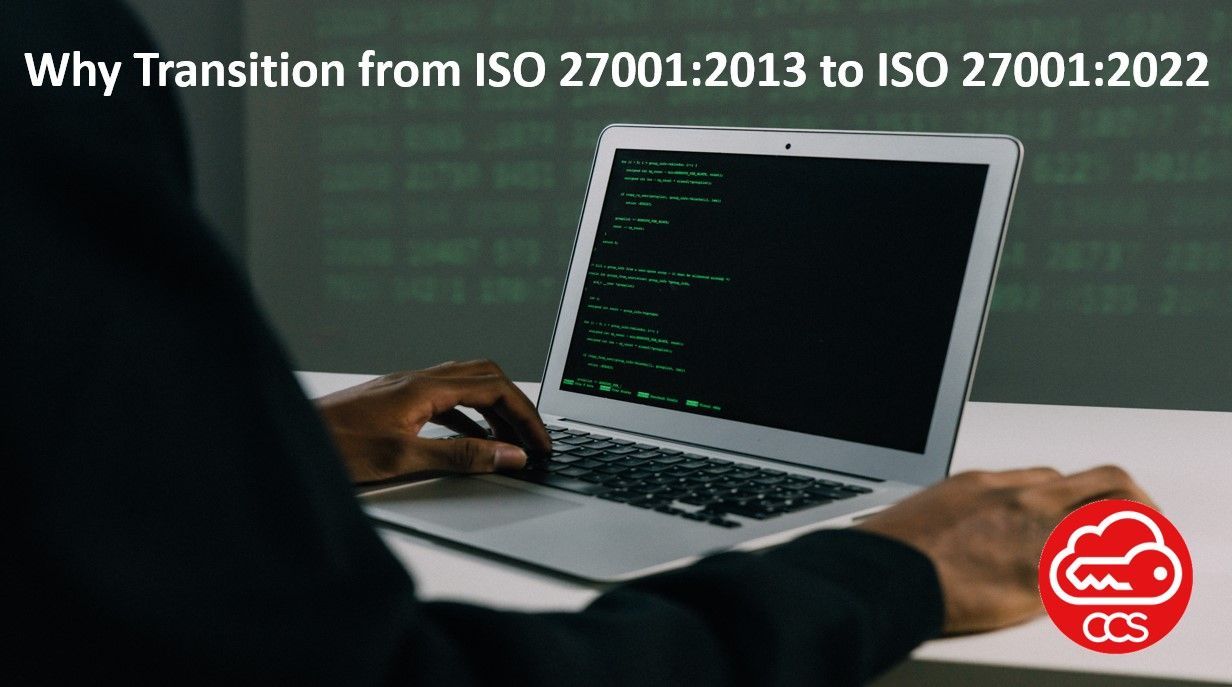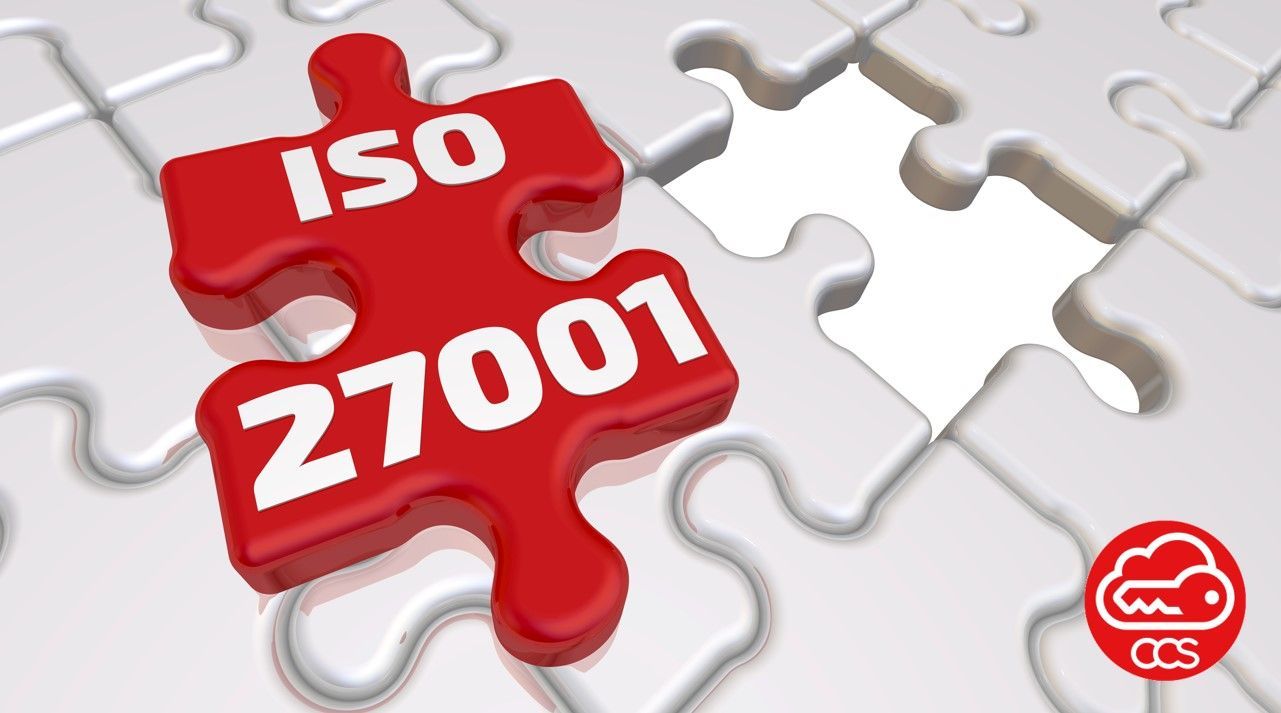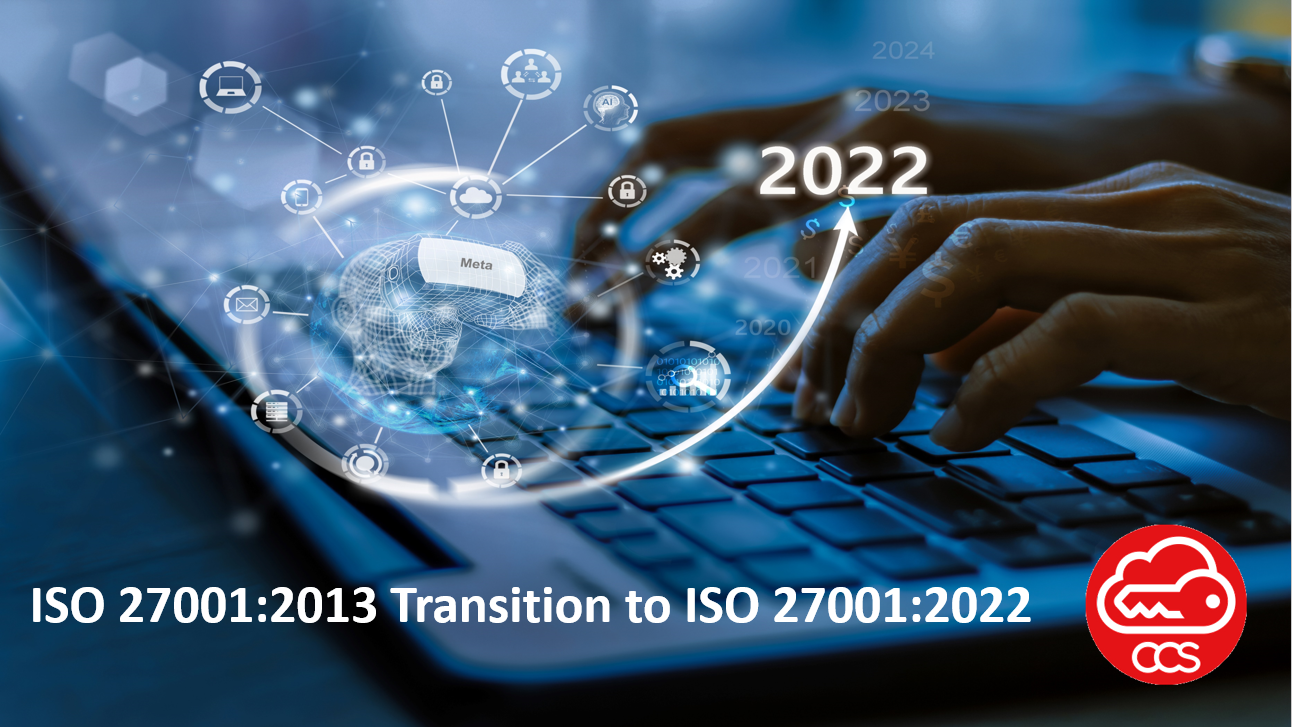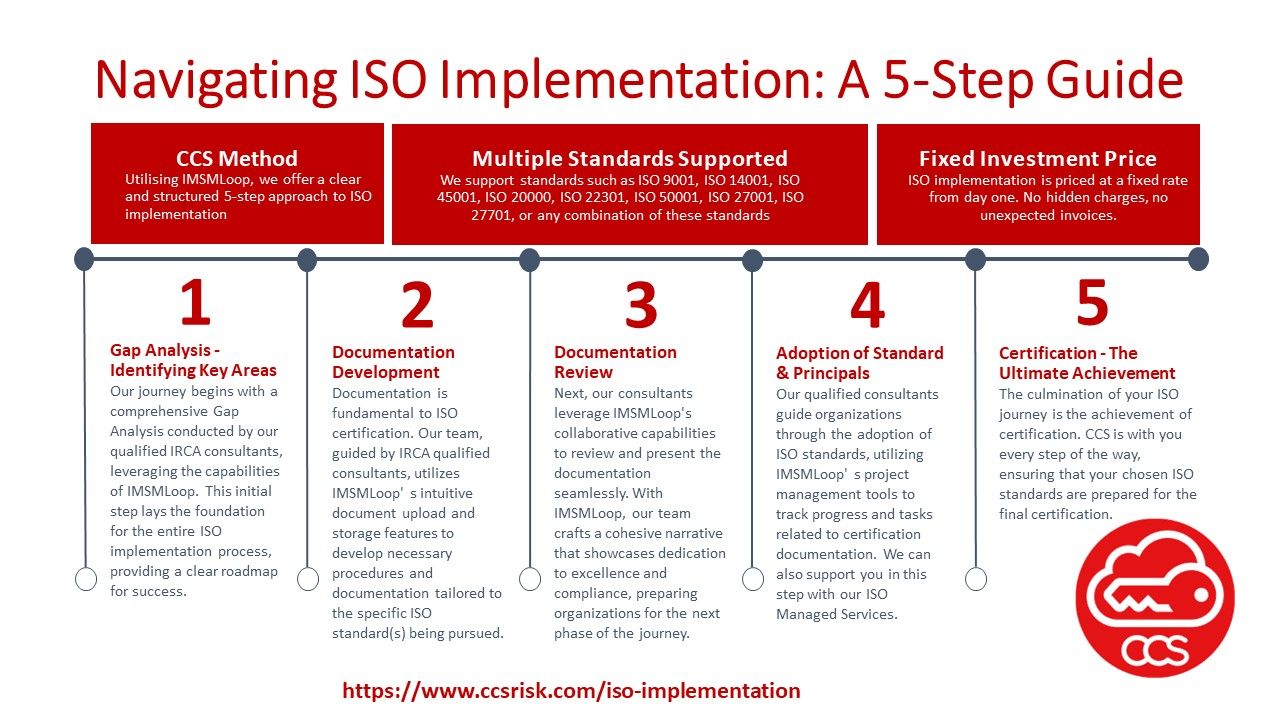ISO27001 provides a framework to provide Information security, cyber security and privacy protection that aims to protect the information of your organisation from security threats and will enable you to identify your information and data assets, determine the threats, assess the vulnerabilities, and then look for the controls within ISO27001 to address them.
Why Businesses Should Transition
from ISO 27001:2013 to ISO 27001:2022
In today's digital age, the security of information assets has become paramount for businesses of all sizes. Implementing a robust information security management system (ISMS) is essential to protect sensitive data, maintain customer trust, and comply with regulatory requirements. The International Organisation for Standardisation (ISO) provides a globally recognised framework for effective information security management through ISO 27001. With the recent release of ISO 27001:2022, businesses are presented with an opportunity to enhance their security posture and stay ahead of emerging threats.
Introducing the Features of ISO 27001:2022 and the Importance of an ISMS:
ISO 27001:2022 brings several new features and updates that strengthen the framework for information security management. It builds upon the foundation of ISO 27001:2013 and introduces key improvements that reflect the evolving landscape of cybersecurity threats and technologies. Some notable features of ISO 27001:2022 include:
- Risk-based Approach:
- ISO 27001:2022 places a greater emphasis on a risk-based approach to information security management. This means that organisations must identify and assess risks to their information assets, prioritise them based on their potential impact, and implement appropriate controls to mitigate those risks. This approach enables organisations to allocate resources efficiently and focus on the areas that pose the greatest threats to their information security.
- Updated Control Set:
- The updated version of ISO 27001 incorporates a revised control set that encompasses emerging technologies and evolving best practices. It provides organisations with specific guidance on implementing controls for areas such as cloud computing, mobile devices, social media, and the Internet of Things (IoT). By adopting ISO 27001:2022, businesses can align their security controls with the latest technological advancements and address the unique risks associated with these technologies.
- Supply Chain Security:
- ISO 27001:2022 recognises the importance of supply chain security in today's interconnected business environment. It provides guidance on assessing and managing risks associated with external suppliers and partners. Organisations are encouraged to evaluate the security practices of their supply chain stakeholders, establish contractual agreements that enforce security requirements, and monitor the performance of their suppliers. This focus on supply chain security helps organisations identify and mitigate vulnerabilities that can arise from dependencies on third parties.
Why an Information Security Management System (ISMS) is important:
An ISMS is a systematic approach to managing sensitive information within an organisation. It provides a framework for identifying, assessing, and managing information security risks in a structured and consistent manner. Here are some reasons why an ISMS is crucial for businesses:
- Protecting Confidentiality, Integrity, and Availability:
- Information is a valuable asset that must be protected from unauthorised access, alteration, and destruction. An ISMS helps organisations establish policies, procedures, and controls to ensure the confidentiality, integrity, and availability of information assets. By safeguarding sensitive data, businesses can maintain the trust of their customers, protect their intellectual property, and comply with legal and regulatory requirements.
- Proactive Risk Management:
- An ISMS enables organisations to take a proactive approach to risk management. By identifying and assessing information security risks, businesses can implement appropriate controls and measures to mitigate those risks. This proactive stance helps prevent security incidents and minimises the potential impact of breaches or incidents that do occur. It also allows businesses to respond quickly and effectively to emerging threats, reducing the likelihood of reputational damage and financial loss.
- Compliance and Regulatory Requirements:
- Many industries have specific regulatory frameworks that mandate the implementation of effective information security controls. An ISMS provides a structured approach to meeting these compliance requirements. By aligning with internationally recognised standards such as ISO 27001, organisations can demonstrate their commitment to security and ensure they meet the necessary legal and regulatory obligations.
- Business Continuity and Resilience:
- An effective ISMS incorporates business continuity planning and incident response capabilities. By identifying critical information assets, assessing potential threats, and implementing appropriate safeguards, organisations can ensure continuity of operations even in the face of disruptions or security incidents. This resilience helps businesses maintain their competitive edge, protect their brand reputation, and minimise financial and operational losses.
ISO 27001:2022 introduces significant improvements to the framework for information security management. By adopting this updated standard and transitioning from ISO 27001:2013, businesses can benefit from a risk-based approach, an updated control set, and a focus on supply chain security. These features enable organisations to enhance their security posture, address emerging technologies, and mitigate risks associated with external dependencies.
Moreover, an ISMS is crucial for businesses as it ensures the protection of sensitive information, enables proactive risk management, ensures compliance with regulatory requirements, and enhances business continuity and resilience. Implementing an ISMS based on ISO 27001:2022 demonstrates a commitment to information security and provides organisations with a competitive advantage by building customer trust and protecting their brand reputation.
By embracing the features of ISO 27001:2022 and implementing an effective ISMS, businesses can establish a robust framework for information security, effectively manage risks, and navigate the ever-changing landscape of cybersecurity threats. Transitioning to ISO 27001:2022 is a proactive step towards securing valuable information assets and maintaining a strong security posture in today's digital world.
Why businesses should consider transitioning from ISO 27001:2013 to ISO 27001:2022.
- Improved Risk Management:
- ISO 27001:2022 introduces a more risk-based approach to information security management. The revised standard places a greater emphasis on risk assessment and treatment, enabling organisations to identify and prioritise threats, vulnerabilities, and impacts more effectively. By transitioning to ISO 27001:2022, businesses can align their risk management practices with the latest industry trends, ensuring that their security measures are commensurate with the evolving threat landscape.
- Enhanced Security Controls:
- The new version of ISO 27001 offers an updated control set, taking into account emerging technologies and cybersecurity challenges. It reflects the evolving best practices and industry standards for information security management. By adopting ISO 27001:2022, businesses can benefit from improved control requirements, including specific provisions for emerging technologies such as cloud computing, mobile devices, and Internet of Things (IoT) devices. These updated controls enable organisations to address the unique risks associated with these technologies and ensure a higher level of protection for their information assets.
- Focus on Supply Chain Security:
- ISO 27001:2022 places greater emphasis on supply chain security, recognising the interconnected nature of modern business operations. Organisations are increasingly reliant on external suppliers and partners for various products and services, making it crucial to address information security risks beyond their own boundaries. The revised standard provides guidance on managing the security of the supply chain, including the assessment of third-party risks and the establishment of contractual agreements that enforce appropriate security measures. Transitioning to ISO 27001:2022 enables businesses to bolster their supply chain resilience and mitigate potential vulnerabilities stemming from external dependencies.
- Increased Flexibility and Scalability:
- ISO 27001:2022 offers greater flexibility and scalability compared to its predecessor. The updated standard provides a framework that can be tailored to the specific needs of different organisations, regardless of their size, industry, or geographical location. This flexibility allows businesses to implement an ISMS that aligns with their unique requirements, while still adhering to internationally recognised best practices. The scalability of ISO 27001:2022 ensures that the standard remains relevant and adaptable to the evolving needs of businesses as they grow and face new security challenges.
- Demonstrating Commitment to Security:
- ISO 27001 certification has long been regarded as a symbol of an organisation's commitment to information security. Transitioning from ISO 27001:2013 to ISO 27001:2022 showcases a company's dedication to staying up to date with the latest industry standards and best practices. It sends a strong message to stakeholders, including customers, partners, and regulators, that the organisation is proactively addressing information security risks and is committed to maintaining the confidentiality, integrity, and availability of critical data.
By transitioning from ISO 27001:2013 to ISO 27001:2022, businesses can reap the benefits of an enhanced information security management system. The revised standard not only aligns with the evolving threat landscape but also provides organisations with the tools and guidance necessary to effectively manage information security risks. Improved risk management, enhanced security controls, a focus on supply chain security, and increased flexibility and scalability are key reasons why businesses should consider making the transition.
Moreover, transitioning to ISO 27001:2022 demonstrates a commitment to security and instils confidence in stakeholders. It showcases a proactive approach to protecting sensitive data and complying with industry best practices. By achieving certification under the updated standard, businesses can differentiate themselves in the market, attract clients who prioritise security, and strengthen their overall reputation.
In conclusion, transitioning from ISO 27001:2013 to ISO 27001:2022 is a proactive step toward fortifying information security management practices. It empowers businesses to stay ahead of emerging threats, adapt to evolving technologies, and enhance their resilience against potential risks. Embracing the latest industry standards and best practices enables organisations to safeguard their valuable information assets and maintain a competitive edge in an increasingly digital and interconnected world.






